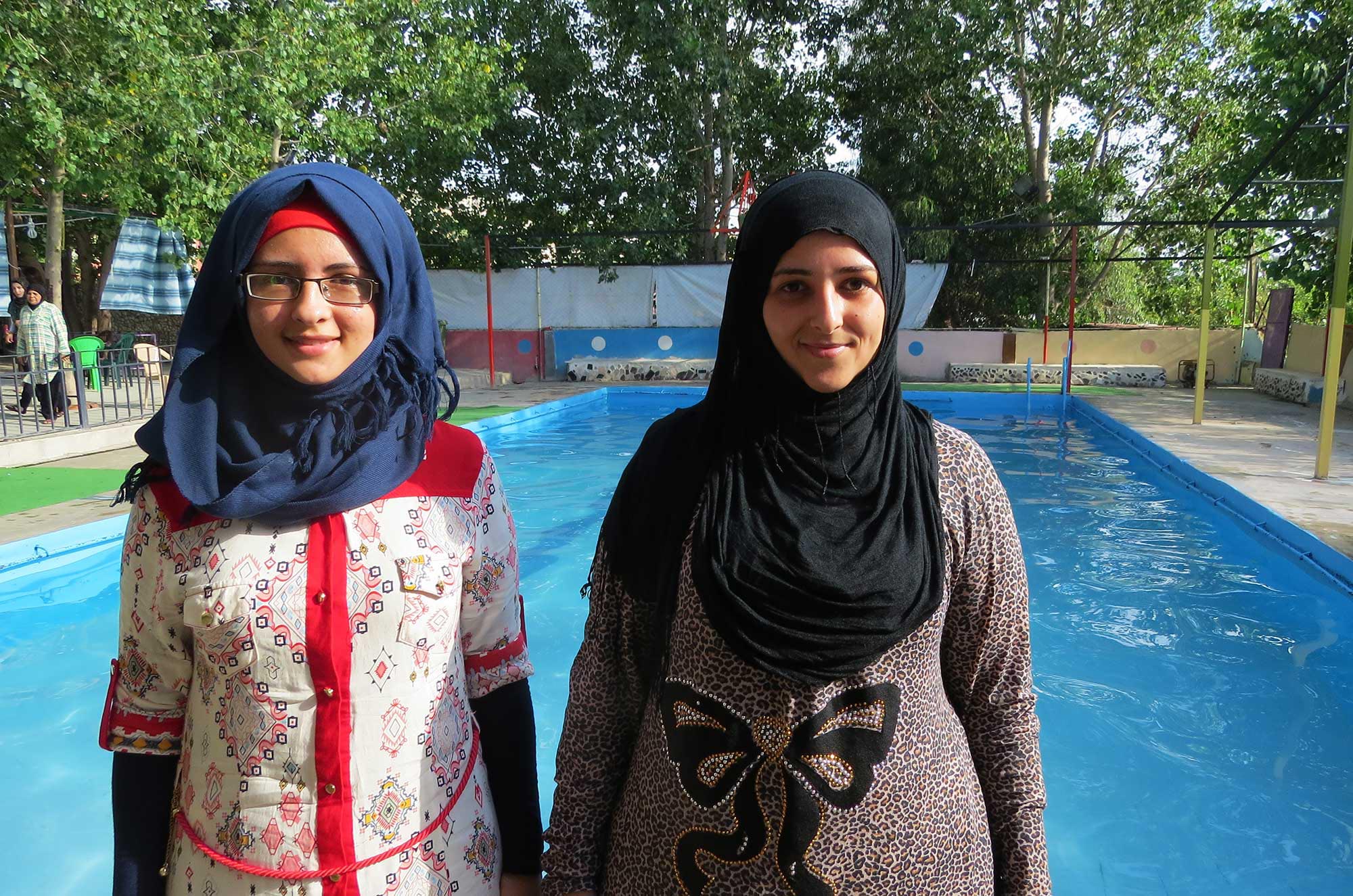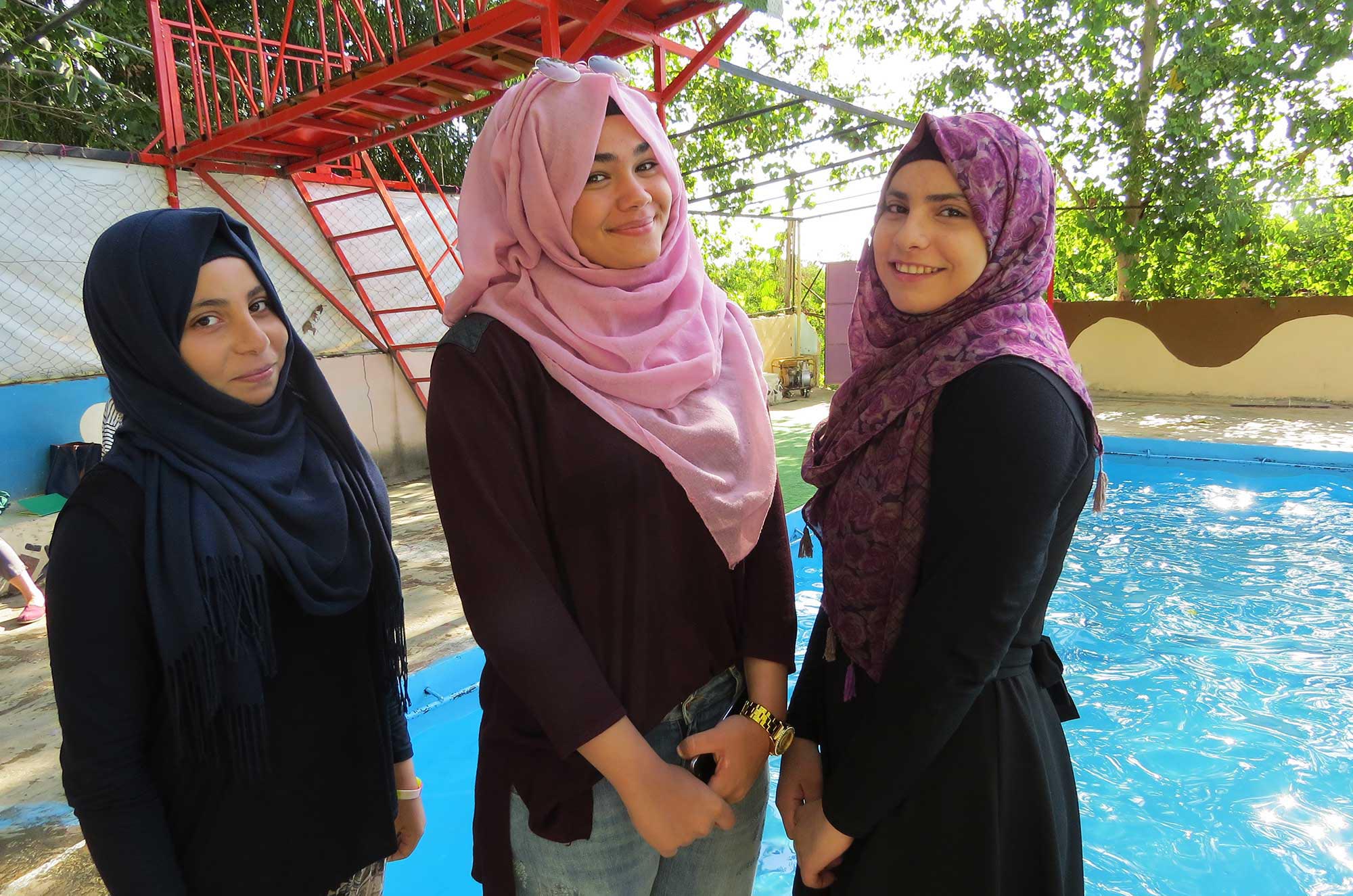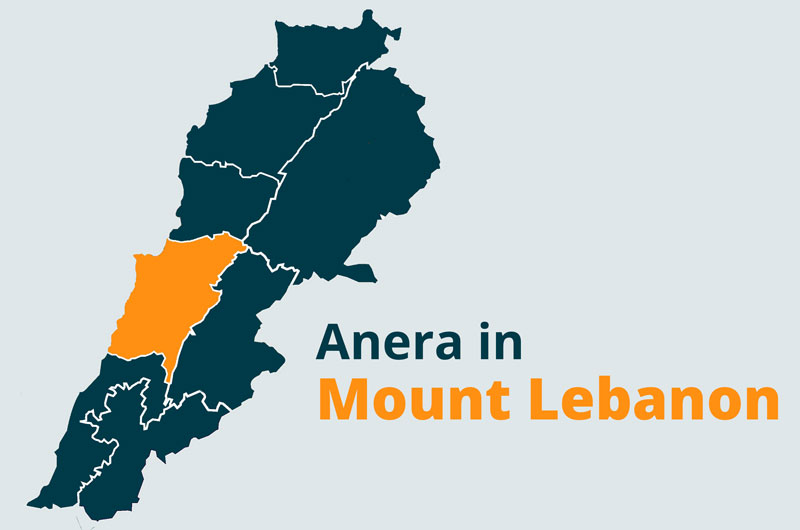Aug, 2016
“I was born into a community where a girl’s daily life consists of eating and cleaning,” said 25-year-old Hanaa.
Hanaa's dark eyes reflect the life she has experienced as a Palestinian refugee raised in a conservative society at Ein El Hilweh refugee camp in southern Lebanon.
When Hanaa was 10 years old her father passed away and her mother pulled her out of school. “Because I’m a girl I wasn’t allowed to learn, to go out, or to do anything a girl my age has the right to do,” she recalled sadly.
But Hanaa’s sister Raheel, by virtue of being younger, had a bit more freedom. Their mother had enrolled her in swimming classes for Palestinian refugee girls in the Women’s Program Center in Ein El Hilweh. When the director, Almaza Sherkawi, heard that there was an elder daughter kept at home, she insisted that Hanaa join the classes too.
And now here she is, dressed in bright red and white, sitting poolside at Hittine Swimming Club. Her story isn’t uncommon, either.


“Because I’m a girl I wasn’t allowed to learn, to go out, or to do anything a girl my age has the right to do."
“I always wanted to learn how to swim but never had the chance to,” explained Sabreen, a 24-year-old housewife who took swimming classes while pregnant. “My parents and husband both hesitated to allow me to participate, but in the end they accepted it because the pool is so close to my house.”
Even the swimming trainer herself struggled to get her parents to let her join the sports program as the lead swimmer. Rawan is a confident 18-year-old who comes from the nearby Mieh Mieh camp to coach girls at Ein El Hilweh. Rawan learned how to swim at a young age from her father, who was also a swimming coach. “I feel that I’m contributing to the lives of these girls,” she said. “They enjoy the sessions a lot.”


Fifteen participants took eight classes in Anera’s initial month-long pilot class, one of several youth refugee sports programs. It was so successful that 50 girls have already signed up for the next round of courses and the club set aside Tuesdays as the special day designated for girls and women only.
“This is a radical change,” said Maya Jezzini, Anera’s youth program officer. “Women never had access to any of the swimming pools in the camp.”


“This is a radical change. Women never had access to any of the swimming pools in the camp.”
The Girls' Swimming Revolution
Lina is a 19-year-old swimmer who convinced her older sister Mona to join in the classes as she recovered from surgery. “I am here to support my sister for I believe every girl should know how to swim,” said Lina. “This is about empowering women to be able to stand up for themselves in the simplest form. And to swim without needing someone to save them.”




“Every girl should know how to swim. This is about empowering women to be able to stand up for themselves in the simplest form. And to swim without needing someone to save them.”
Anera partnered with the Women’s Program Association and Tadamon Association in Ein El Hilweh to organize these swimming classes for Palestinian refugee girls and women ages 14-24. The initiative began with a pilot program last month, in partnership with UNICEF, and with funding from UK Aid, German Cooperation and KFW.


